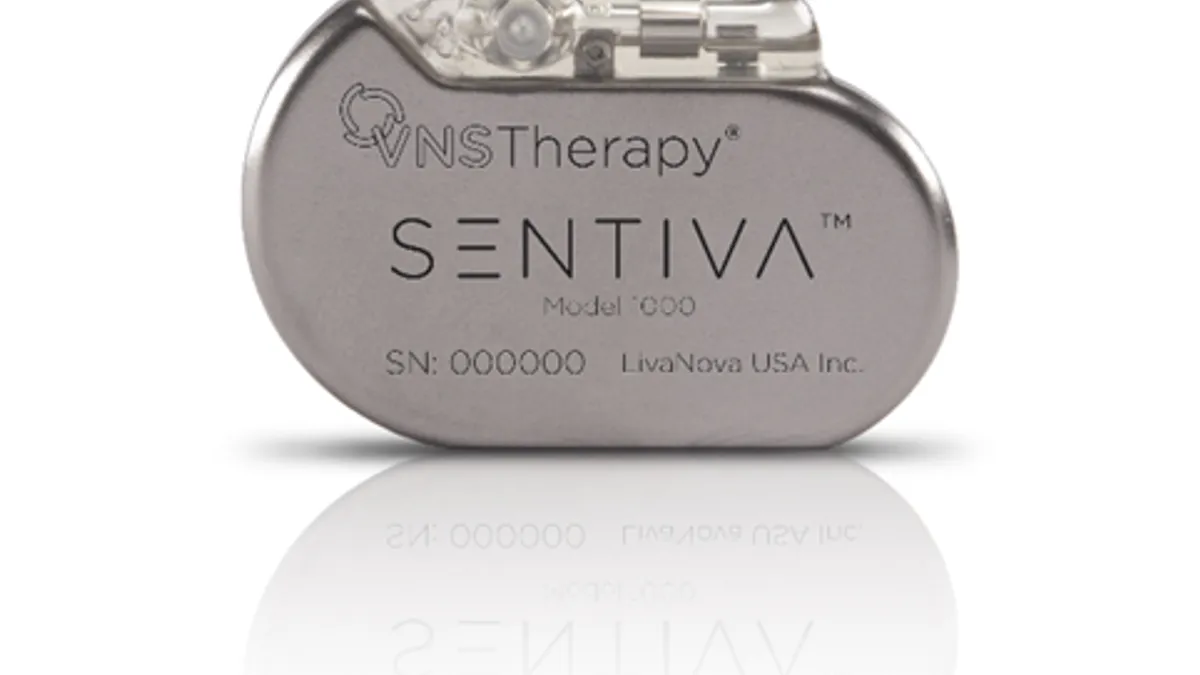Dive Brief:
- LivaNova is recalling its vagus nerve stimulation (VNS) device that is implanted in patients to treat major depressive episodes and to control seizures associated with epilepsy, FDA said on Friday.
- The company initiated the recall on Aug. 22, and FDA has now identified it as Class I, the most serious type.
- FDA received 14 reports of reset errors that caused the neuromodulation system to stop delivering treatment. No deaths were reported. Four patients required revision surgery to replace the generator, which carries additional risk, the agency said.
Dive Insight:
The recall affects 2,909 devices in the United States. Any patient with an implanted SenTiva Generator System whose device resets, or who experiences a loss of stimulation or an increase in seizures or depression symptoms, is advised to contact a healthcare provider immediately to determine if a replacement device is needed.
All of the devices that failed did so within 60 days of the start of therapy, FDA said. LivaNova said it is working with the agency to fix the reset error. Since taking steps on July 31 to mitigate the problem no additional reset errors have been reported. FDA is currently reviewing the mitigation work.
In August, the company sent an urgent medical device recall notice to U.S. hospitals and doctors whose patients had received the implant. A follow-up notification was sent describing recommended next steps for patients and doctors, including using the magnet mode to verify that stimulation is felt, and performing setting verification and diagnostic testing at each office visit.
The pacemaker-sized generator is implanted under the skin in the upper chest and sends mild electrical pulses to the brain through a wire that is attached to the vagus nerve in the neck. FDA approved VNS therapy in 2005 for treatment-resistant depression in adults and in 1997 to treat drug-resistant epilepsy. In 2017, the therapy was approved for epilepsy patients as young as four years of age.
The neuromodulation designed to target depression was developed by LivaNova predecessor company Cyberonics. In 2015, Houston-based Cyberonics merged with Milan’s Sorin Group in a $2.7 billion transaction to create LivaNova.
Although VNS therapy has been approved for treatment-resistant depression for nearly 15 years, CMS only recently agreed to cover the device for Medicare beneficiaries enrolled in the company's U.S. study through a coverage with evidence development framework. In September, the company announced it finalized the study protocol and would begin enrolling patients. CMS already provides coverage for VNS therapy for drug-resistant epilepsy.










